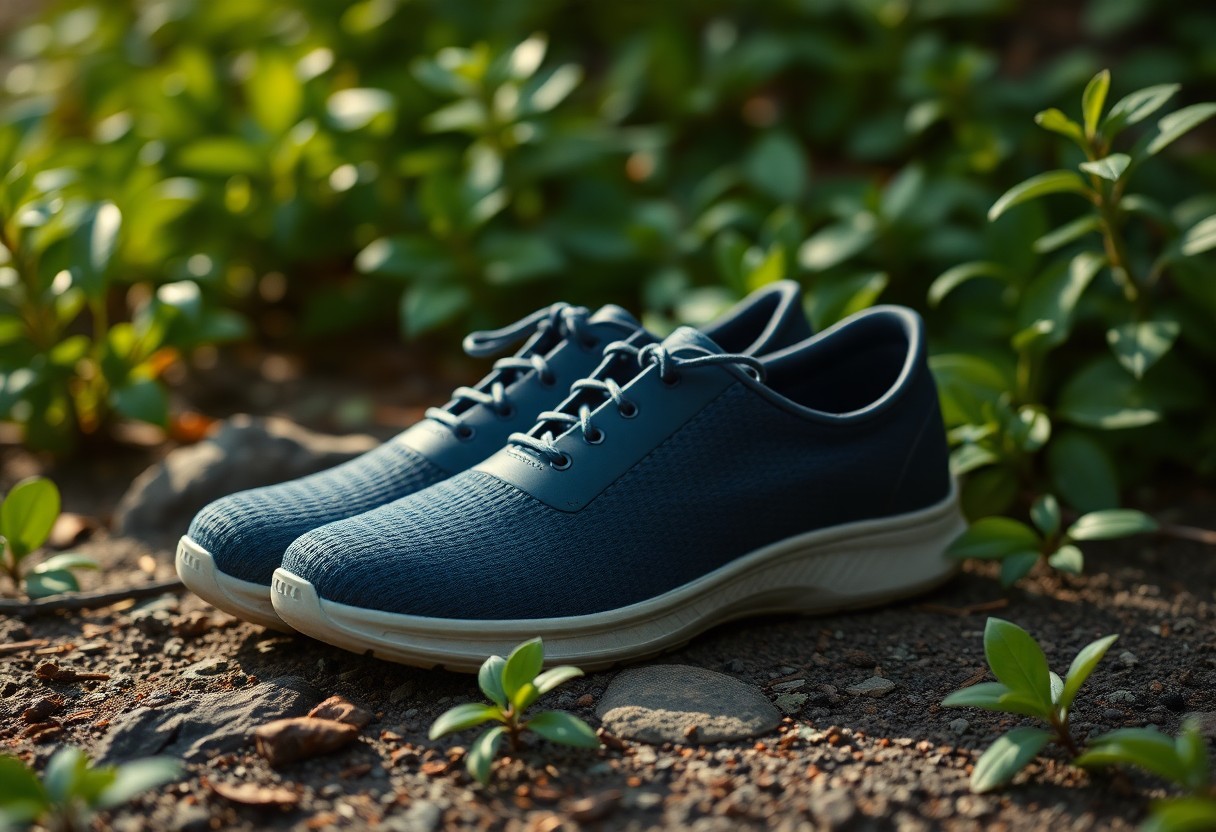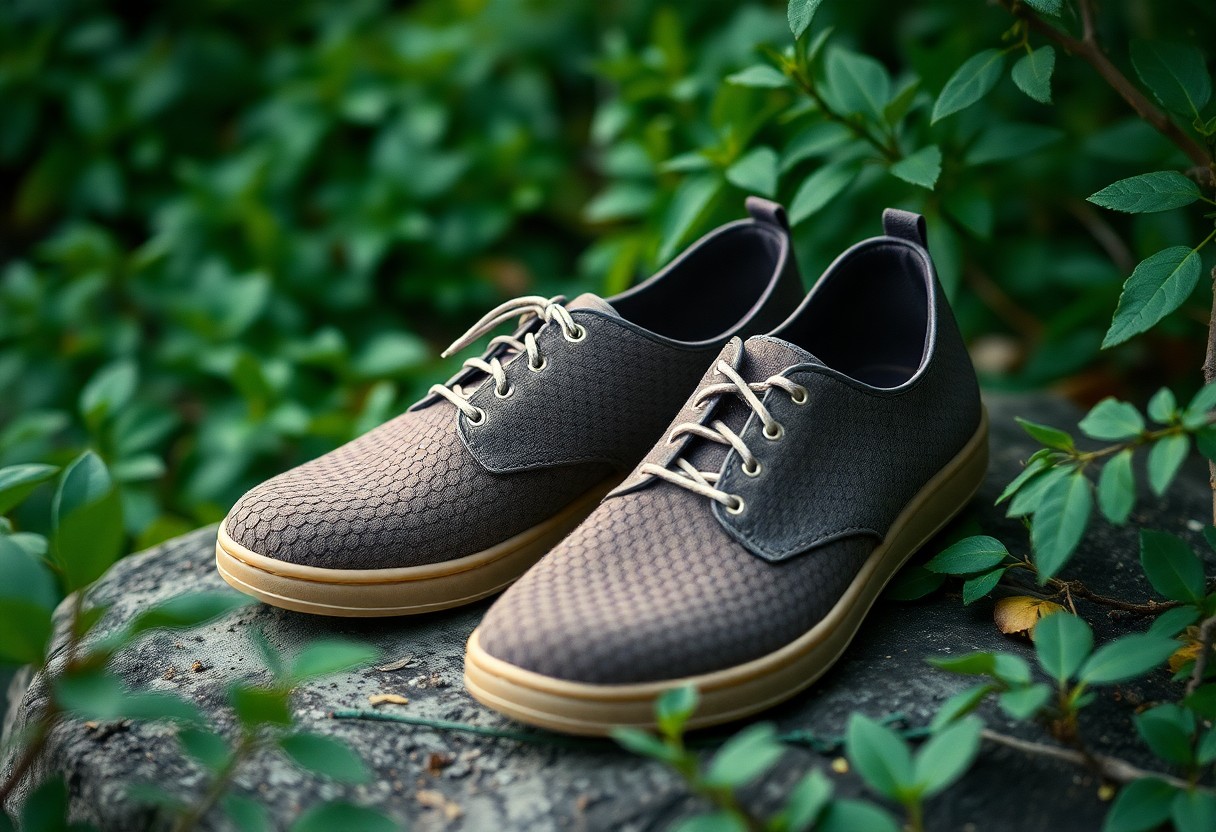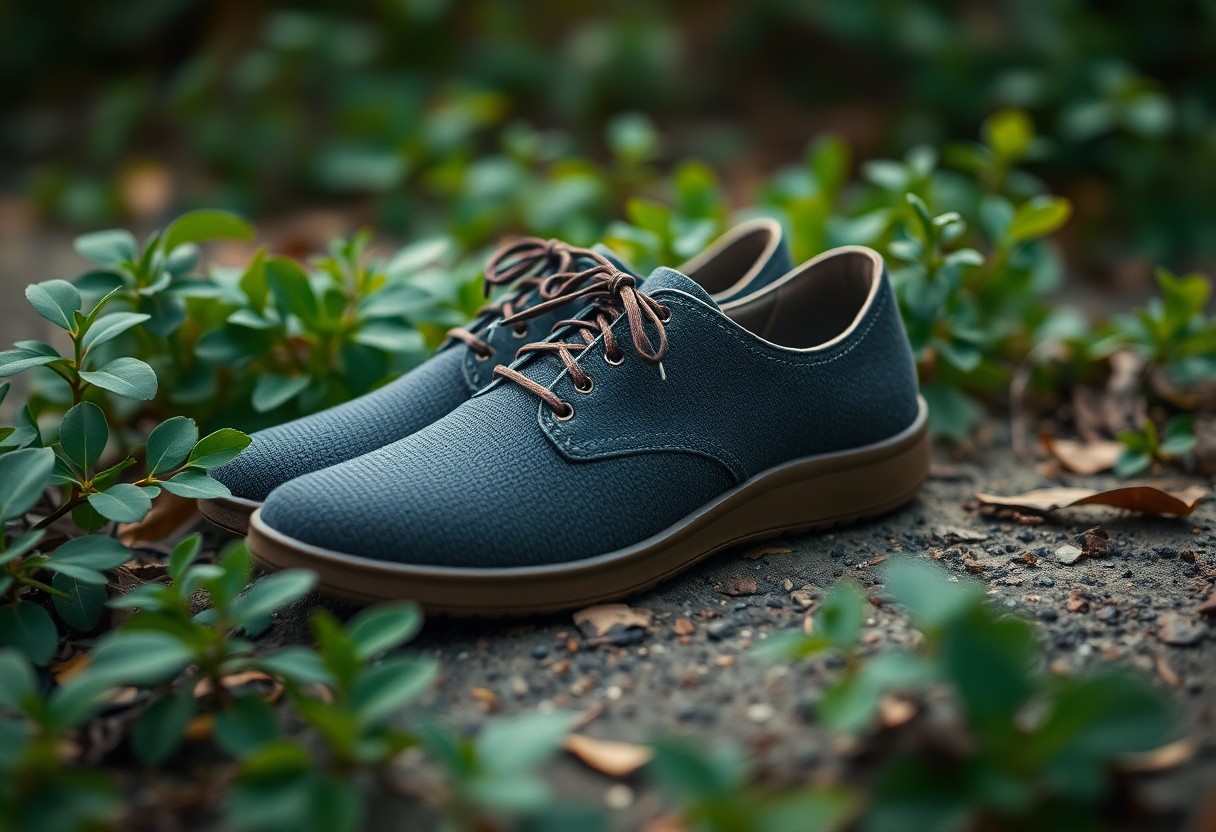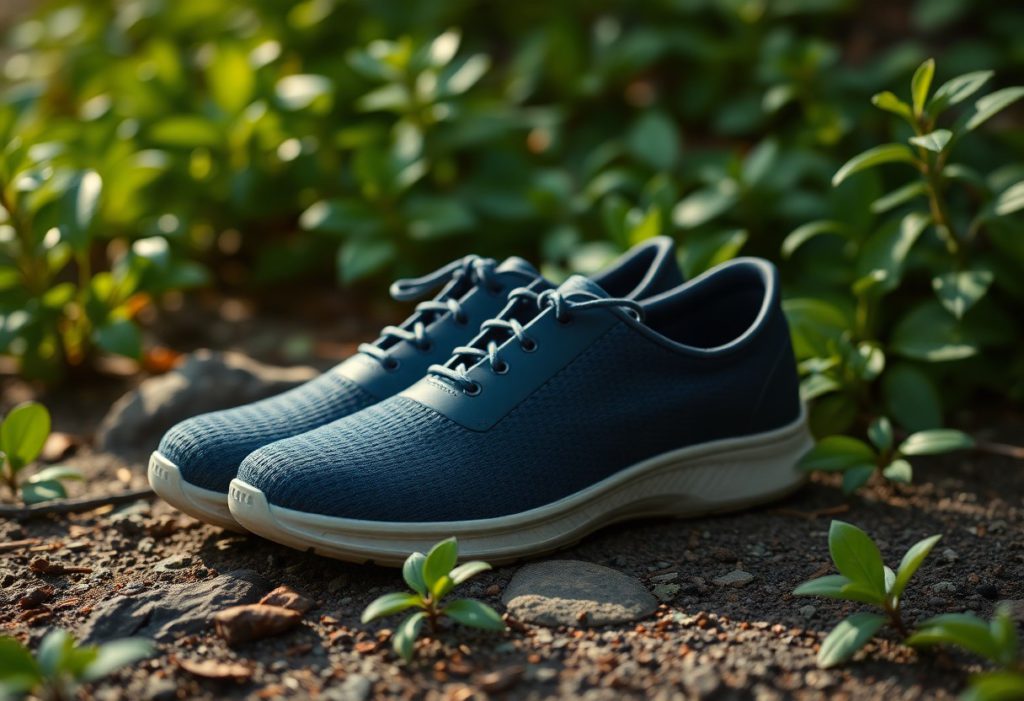With the rising demand for footwear that embodies personal values—such as being minimalist, functional, and environmentally friendly—Xero Shoes has emerged as a prominent brand in the market. These innovative shoes seamlessly blend barefoot flexibility with eco-conscious materials, including recycled soles and plant-based dyes. This leads to an essential inquiry: how sustainable are they in reality? Xero Shoes offers carbon-neutral shipping and durable designs that strive to minimise waste; yet, the presence of certain synthetic components presents challenges. By choosing Xero Shoes, you are making a conscious step towards sustainability while considering environmental impact, even if certain compromises exist. For those searching for footwear that prioritises eco-friendly practices, here are vital insights to consider.
Uncover the Advantages of Eco-Friendly Footwear Choices
In stark contrast to traditional shoes that often rely on synthetic materials and harmful manufacturing techniques, eco-friendly footwear is crafted with sustainability at the forefront of every production stage. These forward-thinking shoes employ recycled, biodegradable, or plant-based materials, substantially reducing waste and carbon emissions. For individuals who are passionate about barefoot movement, brands like Xero Shoes integrate this philosophy with minimalist designs, enabling you to tread lightly on our planet—akin to walking with a lighter footprint, both literally and environmentally.
Delve Deeper into Eco-Friendly Footwear Concepts
Fundamentally, eco-friendly footwear refers to shoes that are constructed from sustainable materials such as organic cotton and natural rubber, all while adhering to ethical manufacturing standards. These shoes intentionally eliminate toxic dyes, excessive packaging, and non-recyclable components, ensuring that your purchasing decisions contribute to healthier ecosystems and fair labour practices. It’s essential to grasp that it is not solely about the shoes you wear, but also about the processes that underpin their creation.
Why Minimalist Shoe Designs Are Gaining Popularity
In contrast to conventional cushioned shoes, minimalist designs, including barefoot shoes, have surged in popularity due to their natural feel and environmental advantages. By minimising excess material, these shoes significantly reduce waste and energy consumption, epitomising the philosophy of “less is more.” This trend is reflected in brands such as Xero Shoes, which utilise thin, durable soles and lightweight fabrics, thereby decreasing resource utilisation. This evolution highlights a growing awareness that simpler designs can effectively reduce your carbon footprint without compromising on functionality.
For instance, Xero Shoes employs lightweight materials and innovative techniques to develop footwear that not only feels great but also respects the environment. This thoughtful approach resonates with consumers who prioritise sustainability in their lifestyle choices.
The Essential Role of Sustainable Practices in the Footwear Industry
The production of shoes significantly contributes to pollution and landfill waste, with billions of pairs discarded each year. Implementing sustainable practices, such as employing recycled plastics and water-based adhesives, helps mitigate these environmental issues. By opting for eco-friendly alternatives, you are endorsing innovative practices that protect ecosystems and minimise harm. However, it is crucial to acknowledge the severity of the situation: the fast fashion industry’s reliance on synthetic materials leads to the release of microplastics and resource exploitation. In contrast, sustainable brands focus on longevity and circularity, ensuring that your footwear does not contribute to the ongoing crisis.
Investigating the Sustainable Materials Utilised in Xero Shoes
If you are in pursuit of eco-friendly barefoot shoes, Xero Shoes underscores sustainability through the incorporation of recycled PET and hemp, effectively reducing waste and environmental harm. Their commitment to green alternatives ensures that your footwear aligns with your values—like walking with a lighter footprint in both a literal and environmental context.
Eco-Friendly Recycled PET Laces: A Small Step Towards Sustainability
Sustainable practices can begin with seemingly minor details, and Xero Shoes’ laces are crafted from 100% recycled PET, which repurposes plastic waste into durable, functional components. By selecting these laces, you contribute to diverting plastic from landfills while enjoying performance that lasts, thereby aiding in the creation of a cleaner planet.
The Environmental Benefits of Hemp Uppers
The ecological advantages of Xero Shoes’ hemp uppers are considerable. Hemp is a low-water, pesticide-free crop known for its capacity to regenerate soil health. Its natural breathability and strength make it an excellent option for barefoot shoes, promoting comfort without compromising the Earth. Choosing hemp supports a cleaner future due to its rapid growth and carbon-sequestering properties. Unlike synthetic fabrics, hemp naturally biodegrades, reducing long-term waste accumulation. Additionally, its antimicrobial characteristics help maintain the freshness of your shoes for extended periods.
When comparing hemp to conventional materials:
| Hemp | Requires 50% less water than cotton |
| Synthetics | Derived from fossil fuels, non-biodegradable |
Evaluating the Environmental Impact of Minimalist Footwear Design
Xero Shoes’ minimalist designs not only reduce material waste but also lower your carbon footprint by necessitating fewer resources during production. The streamlined design process ensures that less energy is consumed in manufacturing, and the absence of superfluous padding or synthetic layers significantly diminishes landfill contributions. Choosing minimalist footwear supports a design philosophy that prioritises efficiency and sustainability, akin to walking with a lighter footprint—both literally and environmentally.
Utilising Lightweight Materials for Enhanced Sustainability
The environmental benefits of Xero Shoes are evident in their lightweight, low-impact materials, which include recycled rubber soles and vegan-friendly fabrics. These choices alleviate pressure on natural resources while still providing high performance. You will notice that these materials also contribute to a reduction in transportation emissions, as lighter shoes require less fossil fuel during shipping, fostering a greener planet.
Longevity and Durability of Xero Shoes
Beyond their eco-friendly materials, Xero Shoes are engineered for longevity, minimising the need for frequent replacements. The reinforced stitching and high-quality rubber outsoles are designed to withstand wear and tear, ensuring your shoes remain functional for years to come. This durability directly translates to reduced landfill waste, making them a prudent investment for sustainable living.
Indeed, Xero Shoes’ durability is supported by a 5,000-mile sole warranty, highlighting their commitment to minimising environmental impact. Fewer replacements lead to lower resource consumption, and their repairable design allows you to extend the lifespan of your shoes even further. For eco-conscious consumers, this combination of resilience and sustainability is genuinely transformative.
Gaining Insight into Certifications and Ethical Manufacturing Practices
Once again, Xero Shoes demonstrates its dedication to sustainability by adhering to rigorous certifications and ethical practices. Their transparency in sourcing and manufacturing ensures that your barefoot shoes are in line with eco-friendly values. From carbon-neutral shipping to recycled materials, Xero prioritises minimising environmental harm while providing high-performance footwear. Like walking with a lighter footprint—both literally and environmentally—their efforts exemplify a genuine commitment to planet-friendly practices.
The Importance of Fair Trade Certification in Footwear
By choosing Fair Trade-certified materials, Xero Shoes actively promotes ethical labour conditions and fair wages for workers. Your purchases contribute to empowering communities and fostering social equity. Although not all their products carry this certification, their continual efforts to enhance supply chain ethics signify significant progress toward a more responsible future.
Recognising PETA-Approved Vegan Certification
Impact is crucial, and Xero Shoes’ PETA-Approved Vegan certification guarantees that your footwear is 100% free of animal-derived materials. This certification aligns with a cruelty-free lifestyle while simultaneously reducing the environmental impact associated with leather production. Their vegan selections exemplify that it is feasible to uphold ethical standards without compromising performance.
Moreover, PETA’s approval involves not just material sourcing; it includes a rigorous audit of supply chains to ensure there is no exploitation of animals. Xero Shoes’ commitment in this regard means you can trust their claims, steering clear of common greenwashing pitfalls prevalent in the industry. For eco-conscious consumers, this certification provides an additional layer of assurance regarding your sustainable choices.

Case Study: Personal Experiences with Sustainable Footwear
A plethora of barefoot shoe enthusiasts have shared how Xero Shoes resonate with their eco-conscious values, appreciating the brand’s minimalist design and sustainable materials. Whether focusing on waste reduction or selecting vegan-friendly options, users emphasise how these choices reflect their dedication to a greener lifestyle—like walking with a lighter footprint, both literally and environmentally.
Examining Lifecycle Impact of Footwear
Xero Shoes strives to minimise environmental harm at every stage of their product lifecycle, from production to eventual disposal. Their durable construction enhances wearability, while recyclable components significantly reduce landfill contributions. You will find that their lifecycle approach balances performance with planet-friendly practices.
Feedback from Advocates of Sustainability
Insights from eco-conscious wearers indicate strong support for Xero Shoes’ transparency and ethical sourcing. Advocates highlight the brand’s initiatives, such as using recycled materials, which resonate deeply with their personal sustainability goals.
Upon deeper examination of these testimonials, it becomes clear that durability and low-carbon manufacturing are frequently cited as standout features. However, some advocates suggest there is room for improvement in end-of-life recycling programmes, encouraging the brand to further innovate in circular practices.

The Influence of Consumer Choices on Sustainability
Sustainable habits commence with you. Your decisions as a consumer shape market demand, influence brands, and drive the transition towards eco-friendly practices. By choosing products like Xero Shoes, you support companies that prioritise minimal waste and ethical sourcing, demonstrating that small actions can lead to substantial change.
Environmental Impact of Purchasing Decisions
Before finalising a purchase, consider your environmental footprint. Each transaction generates ripple effects—from resource extraction to landfill waste. Opting for barefoot shoes made from recycled materials or biodegradable components can significantly reduce your impact, reinforcing the notion of walking with a lighter footprint—both literally and environmentally.
The Crucial Role of Consumer Education and Awareness
Understanding the lifecycle of your footwear is vital. The more informed you are, the better your choices will become. Brands like Xero Shoes openly share their processes, assisting you in avoiding greenwashing and aligning with genuine sustainability.
Consumer awareness extends beyond superficial labels. Researching materials, labour conditions, and carbon footprints empowers you to make educated decisions. Ignorance fuels unsustainable practices, while knowledge fosters accountability and progress in sustainable consumerism.
The Rising Demand for Sustainable Products in the Market
The growing interest in eco-friendly footwear is indicative of a broader cultural shift. As more individuals prioritise sustainability, brands are responding with innovations such as plant-based soles and zero-waste packaging, demonstrating that your consumer preferences can instigate meaningful change within the industry.
Your behaviours shape market dynamics. Your preference for sustainable options pressures competitors to adapt or risk becoming obsolete. Fast fashion and synthetic materials are on the decline as conscious consumers advocate for alternatives, progressively contributing to a healthier planet.
Financial Considerations in Sustainable Footwear Choices
Choosing eco-friendly barefoot shoes, like those provided by Xero Shoes, reflects a growing trend towards sustainable consumerism. While these shoes may require a higher initial investment than conventional options, their durability and minimal environmental impact often justify the cost. By supporting brands that focus on ethical materials and production, you are contributing to a circular economy that reduces waste and promotes fair labour practices. Like walking with a lighter footprint—both literally and environmentally—your purchase aligns with values that benefit both the planet and future generations.
Cost Considerations for Eco-Conscious Consumers
Among the factors influencing your decision, the initial price of sustainable barefoot shoes may exceed that of mass-produced alternatives. However, their extended lifespan and repairability frequently offset this cost over time. Brands like Xero Shoes prioritise quality materials, which result in fewer replacements and lower waste. While the initial expense may give you pause, the value-per-wear makes them a sensible financial choice for eco-conscious consumers.
Long-Term Benefits of Investing in Eco-Friendly Products
Beyond reducing your carbon footprint, eco-friendly barefoot shoes also offer health and financial benefits. Their natural designs encourage better posture and foot strength, potentially decreasing medical expenses associated with inadequate footwear. By opting for sustainable choices, you are also supporting innovation in green materials, driving transformative change across the industry.
For instance, Xero Shoes utilises recycled and vegan materials that minimise resource depletion and pollution. Over time, your investment in these products contributes to normalising sustainable practices, encouraging more brands to adopt eco-conscious methods. This ripple effect can yield broader environmental benefits, including decreased landfill waste and lower carbon emissions.
Market Trends and Future Projections for Sustainable Footwear
Globally, the demand for sustainable footwear is on the ascent, with barefoot shoes capturing the attention of health- and eco-conscious consumers. Brands like Xero Shoes are at the forefront, harnessing biodegradable and recycled materials to meet this growing demand. As awareness increases, we can expect prices to become more competitive, making eco-friendly options more accessible to a broader audience.
Trends suggest a shift towards transparency, with consumers demanding detailed information regarding ethical sourcing and production practices. This push for accountability is reshaping the industry, although challenges such as greenwashing persist. By remaining informed, you can make choices that align with sustainability goals, ensuring your purchases drive impactful change.
Addressing Challenges in Sustainable Shoe Production
Despite the escalating demand for eco-friendly footwear, producing sustainable barefoot shoes like Xero Shoes presents numerous challenges. The limited availability of certified materials, high production costs, and the necessity for durable yet biodegradable designs complicate the process. You may wonder if these obstacles compromise sustainability—fortunately, brands committed to innovation are actively seeking solutions that ensure your shoes resonate with your values.
Challenges in Sourcing Sustainable Materials
One of the most significant hurdles is sourcing ethically produced, eco-friendly materials. Each component must adhere to stringent environmental guidelines, from recycled rubber soles to plant-based dyes. You will appreciate that Xero Shoes prioritises suppliers who maintain transparent practices; however, scaling these responsibly remains a substantial challenge for the industry.
Balancing Cost and Quality in Sustainable Footwear
Behind every sustainable shoe lies a challenging equation: affordability versus durability. Eco-materials typically incur a higher cost, yet compromising quality can undermine longevity—something you would certainly not accept in footwear designed for extended use. Brands must navigate this balance without shifting the entire burden onto the conscientious consumer.
Challenges arise when budget-friendly alternatives compromise sustainability. For instance, cheaper synthetic options might lower prices but undermine biodegradability. Xero Shoes addresses this challenge by optimising production efficiency, demonstrating that ethical choices do not always equate to exorbitant prices.
The Industry’s Reluctance to Change
A significant barrier is the footwear industry’s hesitance to abandon fast-fashion models. Traditional manufacturers often prioritise profit over ecological responsibility, making it challenging for sustainable brands to thrive. Your support for eco-friendly companies like Xero Shoes is crucial for catalysing systemic change.
Progress may seem slow due to entrenched practices and lobbying against eco-regulations, but consumer demand—driven by your choices—is propelling brands towards greater transparency. Change is indeed occurring, but it requires ongoing advocacy from consumers who prioritise sustainability over convenience.
Innovations in Eco-Friendly Footwear Technology
Stay ahead in sustainability with Xero Shoes’ pioneering advancements in eco-friendly footwear. Their innovations prioritise minimising environmental impact while ensuring top-notch performance, merging comfort with eco-conscious design. From recycled materials to low-waste production methods, these shoes allow you to walk with a lighter footprint—both literally and environmentally.
Enhancements in Sustainable Materials
Xero Shoes incorporates recycled polyester, hemp, and plant-based dyes to mitigate the ecological harm associated with traditional fabrics and modern eco-friendly alternatives. These materials significantly reduce water consumption and carbon emissions, providing you with durable footwear that does not compromise the planet.
Biodegradable Components for a Greener Tomorrow
At the forefront of sustainability, Xero Shoes integrates plant-based outsoles and natural rubber, which decompose more rapidly than synthetic options. This approach effectively diminishes long-term waste, aligning your footwear choices with a circular economy.
Innovations in biodegradable technology ensure these components break down efficiently, leaving minimal environmental traces. By selecting shoes featuring these attributes, you actively contribute to alleviating landfill burdens and minimising microplastic pollution.
Integrating Technology with Sustainable Practices
At the intersection of innovation and ecology, Xero Shoes employs 3D printing and precision engineering to minimise material waste. Their processes emphasise efficiency, ensuring that every step you take is underpinned by sustainable technology.
Sustainability is not merely a buzzword; it is embedded in their operational ethos. From solar-powered factories to carbon-neutral shipping, Xero Shoes exemplifies how high-performance footwear can coexist with environmentally friendly practices, empowering you to make a difference with every purchase.
Comparing Xero Shoes with Competing Eco-Friendly Brands
When evaluating Xero Shoes against other eco-friendly barefoot brands, you will notice significant differences in materials, durability, and sustainability approaches. Here’s a concise overview:
Comparative Analysis of Xero Shoes Versus Competing Brands
| Xero Shoes | Utilises recycled materials, offers vegan options, and emphasises minimalism. |
| Competitors (e.g., Vivobarefoot, Merrell) | Provide similar eco-claims but may lack transparency in sourcing and durability. |
Overview of Comparable Eco-Friendly Brands
Upon exploring the market, brands such as Vivobarefoot, Merrell, and Freet prioritise sustainability in their offerings. Here’s how they compare:
Eco-Friendly Barefoot Shoe Brands
| Vivobarefoot | Offers wildhide leather and recycled materials, but at a premium price point. |
| Merrell | Combines eco-materials with conventional materials, achieving a balance between cost and sustainability. |
Assessing Strengths and Weaknesses of Each Brand
To determine which brand best suits your needs, consider their respective advantages and disadvantages. Xero Shoes excels in affordability and transparency, while Vivobarefoot offers premium materials at a higher price. Merrell, on the other hand, may compromise full sustainability in favour of durability.
In summary, each brand has its trade-offs. Xero’s commitment to vegan and recycled materials is commendable, but some users have reported thinner soles compared to Vivobarefoot’s more robust designs. Merrell’s hybrid approach appeals to consumers seeking a compromise, but might not fully satisfy purists.
Market Positioning of Xero Shoes
While Xero Shoes may trail behind its competitors in brand recognition, it has carved out a niche by balancing eco-consciousness with affordability. Although not as widely recognised as Vivobarefoot, its dedicated customer base appreciates its minimalist philosophy and sustainable practices.
Furthermore, Xero’s direct-to-consumer model helps keep prices competitive, though its limited retail presence may deter some potential buyers. Their commitment to a transparent supply chain and carbon-neutral initiatives makes them an appealing choice for eco-conscious consumers, even amid ongoing debates about durability.
Engagement with Communities and Support for Environmental Initiatives
Xero Shoes transcends the conventional role of a footwear brand by actively promoting eco-conscious values. They undertake initiatives that resonate with their sustainability mission, from waste reduction efforts to supporting various environmental causes. By prioritising transparency, they invite you to participate in their journey towards a greener future—like walking with a lighter footprint both literally and environmentally.
Xero Shoes’ Active Involvement in Environmental Programs
While any brand can claim to be sustainable, Xero Shoes backs it up with tangible actions. They partner with programmes like 1% for the Planet, donating a portion of their sales to environmental nonprofits. Their commitment to minimising carbon emissions and using recycled materials demonstrates their serious intent to reduce their ecological footprint—allowing you to feel good about your purchase.
Nurturing a Community Focused on Sustainability
Any movement towards eco-friendliness thrives on shared values, and Xero Shoes cultivates this connection among like-minded individuals. Through social media, events, and educational content, they empower you to make informed choices, turning customers into advocates for sustainable living.
Moreover, Xero Shoes continuously hosts challenges and workshops that inspire deeper engagement, reinforcing that sustainability is not merely a trend—it’s a lifestyle. By nurturing this community, they amplify the impact of every small step taken towards greener practices.
Encouraging Active Participation from Consumers
The brand goes beyond advocating for sustainability; it invites you to become part of the solution. From recycling old shoes to sharing tips on waste reduction, Xero Shoes provides the necessary tools to help you effortlessly reduce your environmental footprint.
Environmental responsibility begins with awareness, and Xero Shoes simplifies this process. Their #XeroImpact campaign encourages you to share your eco-friendly journey, creating a ripple effect that inspires others. When you choose Xero, you are not just purchasing shoes; you are joining a larger movement.

Frequently Asked Questions on the Sustainability of Footwear
You may have questions regarding the genuine sustainability of barefoot shoes. Xero Shoes places a strong emphasis on eco-friendly practices, utilising recycled rubber and vegan-friendly options. Their commitment to durability leads to fewer replacements, thus minimising waste. However, it’s essential to remember that no brand is flawless—always check their transparency reports for comprehensive impact details.
Common Inquiries Regarding Eco-Friendly Materials
Above all, you might ask: “Are these materials genuinely sustainable?” Xero Shoes employs plant-based dyes, recycled soles, and breathable meshes. While synthetic blends are present, their focus on low-impact production helps mitigate carbon footprints—like walking with a lighter footprint, both literally and environmentally.
Debunking Myths Surrounding Minimalist Shoes
Given the ongoing discussions, you may encounter claims like “barefoot shoes lack support.” In reality, they are designed to strengthen your feet naturally. Myths about discomfort often stem from inadequate transition periods—your body needs time to adapt to the change.
Thus, minimalist shoes are not merely a trend, but a healthier alternative when utilised correctly. Studies indicate improved posture and decreased joint stress, but rushing into wearing them can lead to strain. It’s crucial to listen to your body and transition gradually.
The Importance of Product Certifications in Sustainable Choices
When it comes to material safety, look for certifications like Bluesign® or OEKO-TEX®, which ensure the absence of toxic, responsibly sourced materials. Xero Shoes’ adherence to these standards signals a trustworthy commitment, but it’s wise to verify claims—greenwashing is prevalent.
Therefore, certifications are more than just labels; they serve as your protection against harmful practices. Prioritise brands that undergo third-party audits, as these validate genuine dedication to sustainability, rather than mere marketing hype.
Envisioning the Future of Sustainable Footwear
In the footwear industry, sustainability has evolved from a niche trend to a vital standard. Brands like Xero Shoes are leading the charge with minimalist designs and eco-friendly materials, demonstrating that comfort and ecological responsibility can coexist harmoniously. The future promises further innovations in biodegradable soles, recycled fabrics, and carbon-neutral production, all contributing to reducing your environmental impact—like walking with a lighter footprint, both literally and environmentally.
Trends Driving Innovations in Eco-Friendly Footwear
To meet the growing demand, brands are embracing circular economy principles, including shoe recycling programmes and plant-based materials. Advances in 3D knitting and algae-based foams are designed to minimise waste, while supply chain transparency ensures you are well-informed about your purchases. These trends reflect a movement towards footwear that is as kind to the Earth as it is to your feet.
Forecasts for the Future of the Footwear Industry
In the coming decade, anticipate biodegradable shoes becoming mainstream, with brands competing for the lowest carbon footprint. Customisation through AI may help reduce overproduction, and vegan leather alternatives could dominate the market. Your consumer choices will increasingly shape industry standards, pushing brands to adopt greener practices.
Furthermore, as regulations tighten, companies that do not embrace sustainable methods may face consumer backlash or legal penalties. The rise of carbon labelling will empower you to make informed decisions, turning every purchase into a vote for the planet.
The Influence of Consumer Activism on Driving Sustainability
Among the most powerful forces driving change is your voice. Social media campaigns and boycotts have compelled brands to abandon harmful practices, while grassroots movements demand accountability. By supporting ethical brands, you are not merely purchasing shoes; you are fuelling a revolution.
Eco-friendly activism has already resulted in bans on toxic glues and child labour in supply chains. However, greenwashing remains a concern, so staying informed is crucial. Your vigilance ensures that companies prioritise real impact over mere marketing tactics.
Final Reflections on Sustainable Footwear Choices
In summary, Xero Shoes presents a commendable option for eco-conscious consumers seeking barefoot footwear. Their focus on recycled materials, minimal waste, and durable designs aligns with your values of reducing environmental impact. Like walking with a lighter footprint—both literally and environmentally—their approach successfully balances performance with planet-friendly practices. While perfection remains an unattainable goal, Xero Shoes is committed to sustainability, positioning itself as a strong contender in the barefoot shoe market. If you desire footwear that supports your active lifestyle while respecting the Earth, these shoes are undoubtedly worth your consideration.
The Article Eco-Friendly Barefoot Shoes: How Sustainable Are Xero Shoes? appeared first on My Shoes Finder
The Article Sustainable Xero Shoes: Are They Truly Eco-Friendly? Was Found On https://limitsofstrategy.com







